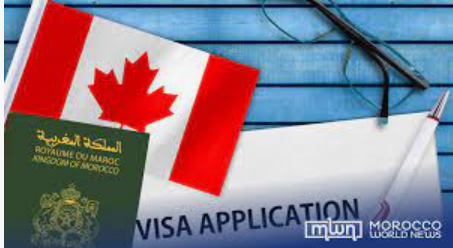Visa rejections can be really frustrating, especially after investing time, money and effort into preparing for your trip.
Some individuals sell some of their belongings to sponsor their trips, only for their visa to end up being rejected.
The rejections alone have caused a lot of heartbreak for people, and understanding the common reasons for visa denials can help you avoid unnecessary setbacks.
Here are five key reasons your visa application might be rejected:
Failure to Meet Financial Requirement:
Your bank statement is one reason that can decide the fate of your visa. Every embassy wants to be certain that you have enough in your account to sponsor your trip. Your application could be denied if the officer in charge is not satisfied with your statement of account.
Tip: Ensure you have recent bank statements, proof of employment, or sponsorship letters that show you have the financial means to sustain yourself while abroad. Make sure these documents are clear, credible, and up-to-date.
History of refusals:
If you have a history of visa refusals in the past, never apply again until you consult a trusted visa expert. The danger of not seeking professional advice is that you are likely to damage your travel profile forever. You don’t want this to happen. The truth is that no embassy would be quick to grant a travel Visa to an applicant with a history of refusals. Such applicants are often seen as desperate to leave their country and may not return.
Insufficient Ties to Your Home Country
Visa officers need to be confident that you will return to your home country after your visit. If they believe you have weak ties to your home country—such as no permanent job, family, or property—it can be seen as a sign that you might overstay your visa or try to immigrate illegally.
Tip: Highlight your strong connections to your home country by providing evidence of employment, property ownership, or family commitments. Showing that you have obligations that will bring you back home is critical to your application’s success.
Previous Immigration Violations or Criminal Record
A history of overstaying a visa, previous rejections, or criminal activity can significantly affect your chances of visa approval. Immigration authorities are very thorough when reviewing applicants’ past travel history and legal background. Any past violations could raise doubts about your intentions and lead to a visa denial.
Tip: If you have a previous visa denial or legal issues, be transparent on your application and provide any necessary documentation to explain the circumstances. Being honest is crucial when applying for a visa.
When your lifestyle is inconsistent with a visa category
Some applicants often burn their own fingers by choosing a category that does not tally with their lifestyle. Imagine a young man, just fresh out of a Nigerian university, opting for a visa to enjoy a luxurious weekend escape in Antigua in the Caribbean. It’s even worse when such a person has no travel history to back up their new taste for such indulgences.
Visa rejections can be heartbreaking, but understanding why they happen can help you improve your chances in future applications. By ensuring your documentation is complete, meeting financial requirements, can reduce the likelihood of a denial. Always take the time to prepare your application and seek professional advice if needed.



